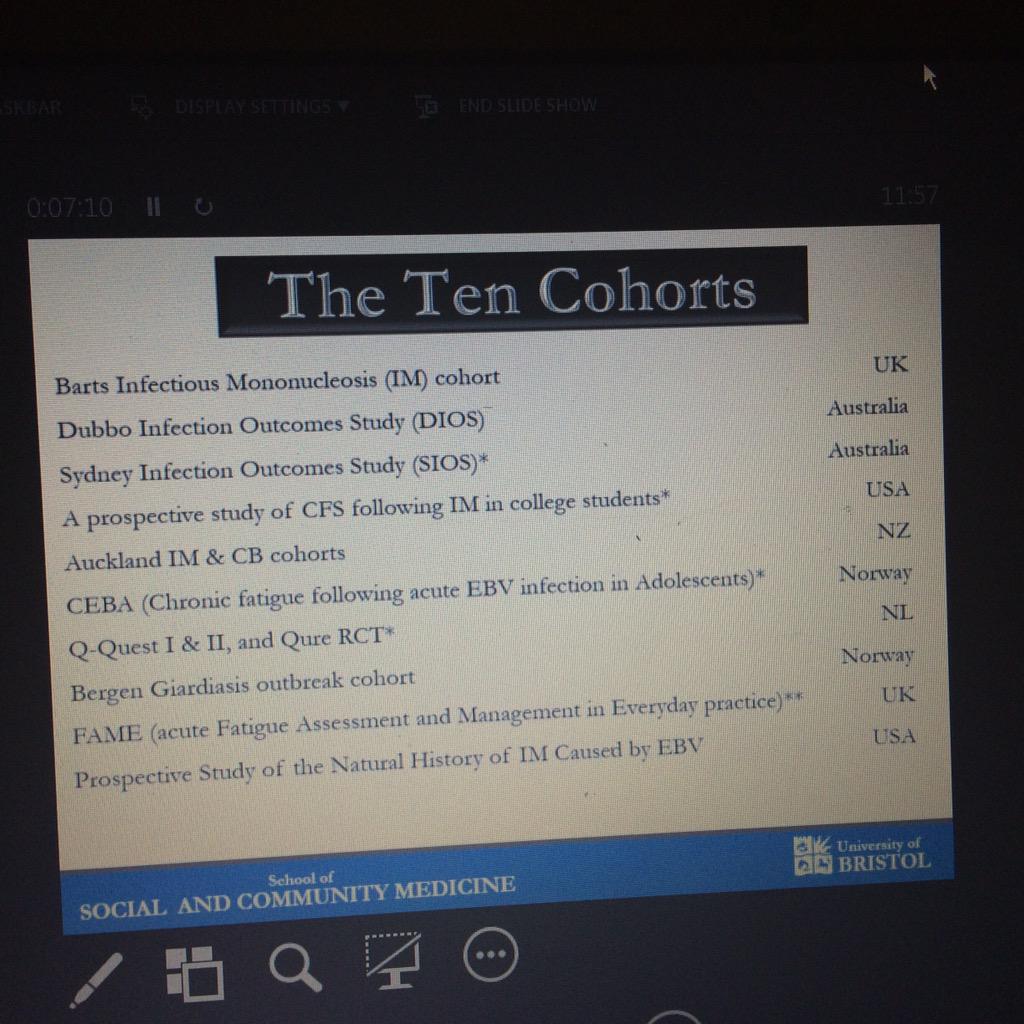Dr Fluge presented on rtx before that - I don't know if they broadcast any of his talk at all.
No, just tweets
esther crawley @CrawleyEsther 58m58
Fluge: autoantibodies decline in Rituximab responders. Non responders have a higher baseline levels and no significant decrease. #CMRC2015
Sonya Chowdhury @SonyaChowdhury 1h1 hour ago
Fluge sharing emerging data from phase III rituximab trial with #mecfs #CMRC2015
Sonya Chowdhury @SonyaChowdhury 1h1 hour ago
Dr Fluge outlining his phase III rituximab trial with 150 participants across 5 centres in Norway #CMRC2015
Katie Druce @katie_druce 1h1 hour ago
Fluge: there's a number of issues in this work and the results must be reproduced in larger samples and meeting other limitations #CMRC2015
esther crawley @CrawleyEsther 1h1 hour ago
Fluge: 6month lag time to clinical response suggests antibodies may be involved as there is a long half live for immunoglobulins #CMRC2015
Katie Druce @katie_druce 1h1 hour ago
Fluge: B-lymphocytes appear to have an important role is symptom maintenance in a sub-group of CFS/ME patients #CMRC2015
esther crawley @CrawleyEsther
Fluge: it takes 6 months to get a response to Rituximab. One third don't benefit. #CMRC2015
Katie Druce @katie_druce 1h1 hour ago
Fluge: mean lag time of those who clinically respond is 23 weeks. The maximum time was one year. Time is clearly key for response #CMRC2015

